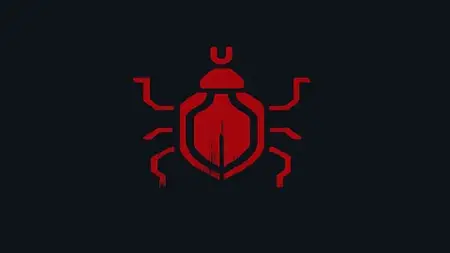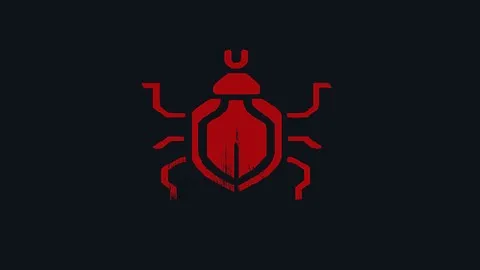Course Malware Development
Published 7/2025
MP4 | Video: h264, 1920x1080 | Audio: AAC, 44.1 KHz
Language: English | Size: 4.80 GB | Duration: 11h 9m
Published 7/2025
MP4 | Video: h264, 1920x1080 | Audio: AAC, 44.1 KHz
Language: English | Size: 4.80 GB | Duration: 11h 9m
Advanced Ransomware Development
What you'll learn
The student will have the knowledge to develop advanced malware
The complete course has 14 theoretical and practical modules, starting with the introduction to Ransomware through to the complete development of the malware.
The course teaches theoretically and practically the development and operation of a Ransowmare
With the knowledge from this course, a student will have knowledge about how the most famous software currently available works.
Requirements
You don't need knowledge, just a desire to learn.
Description
1. PRESENTATIONHere we will begin to teach the history of Ransomware, how itemerged, first reports, groups, victims and much more.2. Golang LogicFinishing the theoretical knowledge, we move on to practice, westart by learning the basics of the Golang language, variables,functions, modules, channel, etc3. File ManipulationNow that we know the basics of Golang, let's dive in and learnabout file manipulation, reading, writing, listing, permissions, etc.Since this is a Ransomware course, it's important to know aboutfiles, don't you agree?4. HashHere we will learn a little about Hash, md5, base64, sha256among others.5. Advanced encryptionIn this module, we will start to make the content more difficult, thestudent will learn in depth the basic and advanced knowledgeabout symmetric and asymmetric cryptography, many used infamous Ransomware, AES, RSA, CHACHA20.6. SandboxLet's learn a little about sandbox environments for evasionprocesses, creating several functions that we can detect if ourmalware is running in test environments.7. Running processesIn real ransomware, there is a list of running processes, this stepis important, the objective is to know which processes we must killfor the malware to run.8. InfosystemIn this module, we will talk about collecting information from our“Targets”, hostname, username, addresses, permission, OS.9. About LogsIn this module, we will learn about logs stored on our targets andhow we can “eliminate” them, an important process in the attackto erase traces.10. READMEHere we will learn how to create our famous warning banner, theone that all ransomware has: “All your files have been encrypted,do not attempt to recover them………”
Overview
Section 1: Presentations
Lecture 1 Presentation
Lecture 2 Access the complete material.
Lecture 3 Aboult Ransowmare
Section 2: FIle Manipulation
Lecture 4 ReadFile
Lecture 5 CreateFIle
Lecture 6 CreateFIle
Lecture 7 ListFile
Section 3: Abault Hash
Lecture 8 Base64
Lecture 9 MD5
Lecture 10 MD5
Lecture 11 SHA256
Section 4: Advanced Encryption
Lecture 12 AES - Create_Key
Lecture 13 AES - Encrypt File
Lecture 14 AES - Decrypt File
Lecture 0 CHACHA20
Lecture 15 CHACHA20
Lecture 16 RSA - Create Key
Lecture 17 RSA - Encrypt Key
Section 5: SandBox
Lecture 18 Sandbox
Lecture 19 Sandbox
Lecture 20 Sandbox
Lecture 21 Sandbox
Lecture 22 Sandbox
Lecture 23 Sandbox
Lecture 24 Sandbox
Section 6: Kill Process
Lecture 25 Kill Process
Lecture 26 Kill Process
Lecture 27 Kill Process
Lecture 28 Kill Process
Lecture 29 KIll Process
Section 7: Infosystem
Lecture 30 Infosys
Lecture 31 Infosys
Section 8: Aboult Logs
Lecture 32 Clear Logs
Section 9: Project: Ransowmare v1
Lecture 33 MapFile - 1
Lecture 34 MapFile - 2
Lecture 35 AES Encryption
Lecture 36 AES Encryption
Lecture 37 XOR
Lecture 38 AES Decryption
Lecture 39 CMD Encrypt
Lecture 40 CMD Decrypt
Lecture 41 First Ransomware Test
Lecture 42 Layout Keyboard
Lecture 43 RSA Encrypt
Lecture 44 RSA Encrypt
Lecture 45 RSA Decrypt
Lecture 46 Organizing Ransowmare
Section 10: Project: Ransomware v2
Lecture 47 Encrypt Process
Lecture 48 Encrypt Process
Lecture 49 Encrypt Process
Lecture 50 Decrypt Process
Lecture 51 CMD Encrypt
Lecture 52 CMD Decrypt
Lecture 53 Running Ransomware
Lecture 54 Acknowledgements
Malware Developers, Red Team, Pentesters, Reverse Engineers.



